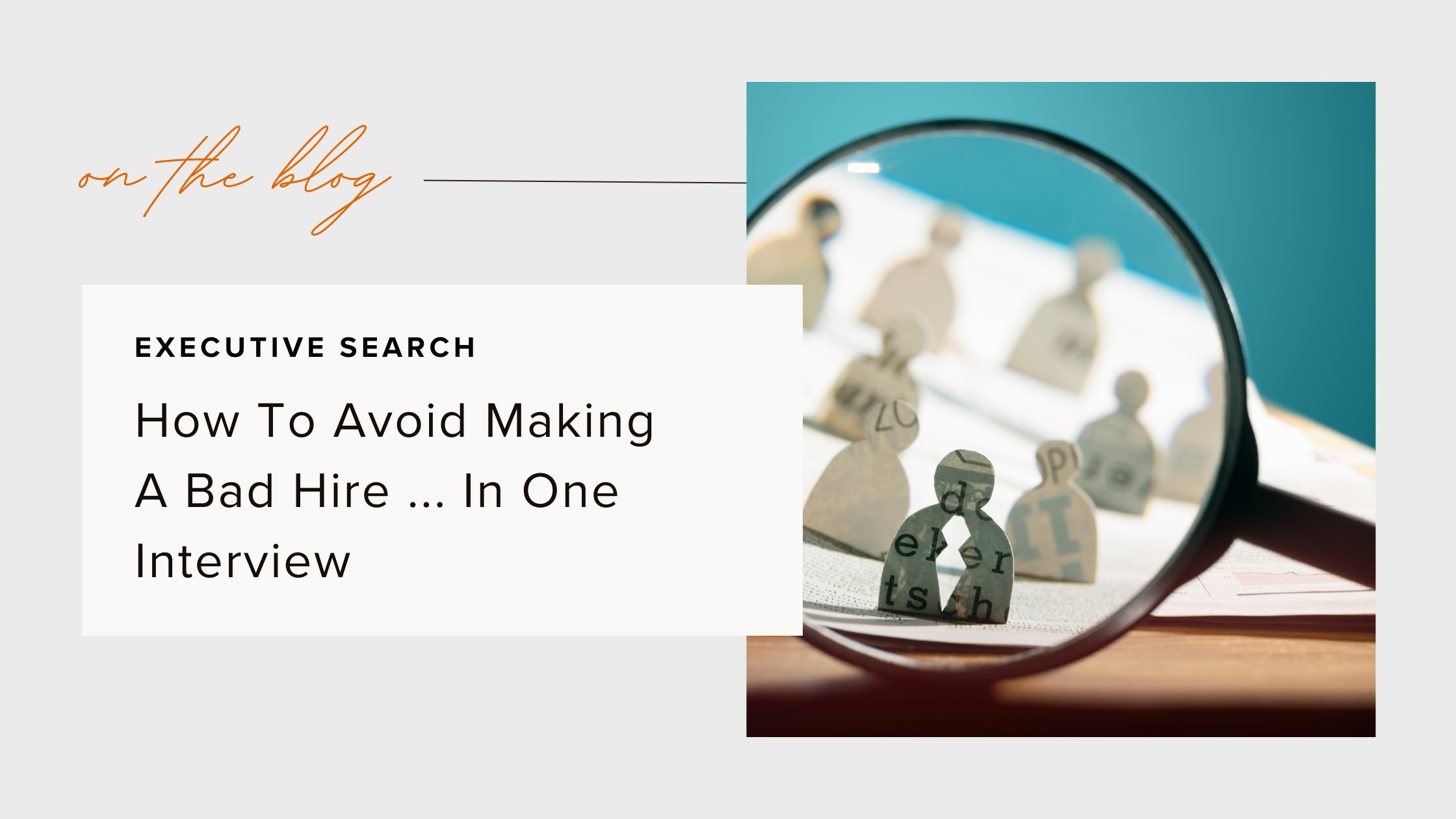3 simple tricks that top interviewers use to make great hires.
I’ve spoken with thousands of business leaders over the past 20 years, and it’s abundantly clear that making a bad hire is highly disruptive to an organization. The cost can be huge in terms of lost productivity, wasted training, and cultural instability.
One issue is that many executives hire in their own likeness, i.e., they hire people who bear some resemblance to themselves. Once this 'likeness' is established, the interviewer is guaranteed to miss critical signals for whether the candidate is a good mix of capability and chemistry fit.
Here's what we know: skills, education, and past job experience create the filter to secure the interview. After that, smart interviewers will ask questions to figure out who the candidate really is. The three most important areas to uncover are:
1. How might the candidate deliver beyond the job as it's currently defined? Senior managers acknowledge that most job descriptions are only 70-80% complete and they expect new hires to expand on the job so they can add the most value.
2. How does the candidate think? Research shows that critical thinking and good judgment are keys to success for a new senior-level hire.
3. What motivates the candidate? A candidate must thrive in a company’s culture to add maximum value.
Here are some tips to conduct a smart interview:
Tip 1: Uncover a candidate’s potential to do more than the job you're hiring them for.
"Tell me about how you shaped your role to deliver at a level beyond what you were originally hired to do?" Their answer should reveal the level of initiative, independent thought, foresight and creativity to suit what you need from them in your company. You could also use this question in an initial phone screen to decide if you even want to bring them in for the interview.
Tip 2: Uncover a candidate’s judgment and complex thinking ability.
Effective interviewers ask questions that require a candidate to synthesize varied concepts to reveal how they think. Avoid simplistic questions like 'what drives you' or 'what are your greatest strengths'; instead ask a multi-part question such as 'In your most recent job, when you made your greatest impact, what factors most contributed to your success and what led you to pursue that course of action?' The answer should reveal their critical thinking ability, their linear or creative thought process, and their ability to present a succinct response while also providing context. The answer to this type of question can determine if you want to end the interview sooner than you would have expected.
Tip 3: Uncover a candidate’s drivers and motivators.
Be curious. Pursue 'the why' behind a candidate's actions -- and a picture of who they really are will emerge. The key is to engage them in an honest dialogue so they have to think on the spot and be authentic in their answers. 'Why did you do it that way?' will reveal their reasoning; "What were the outcomes/consequences of your actions and how did others respond to that?" will unveil if they are sensitive to others' perspectives; "What was the toughest challenge you have encountered and how did you address it?" will reveal what they consider to be difficult or challenging, their level of self-awareness, and, potentially, their EQ and maturity. Armed with this information, you can determine whether, with a little fine-tuning, the candidate could be worth investing in for your company.
By employing these strategies, you’ll make a new hire that will last — and ideally, one that will exceed expectations.


